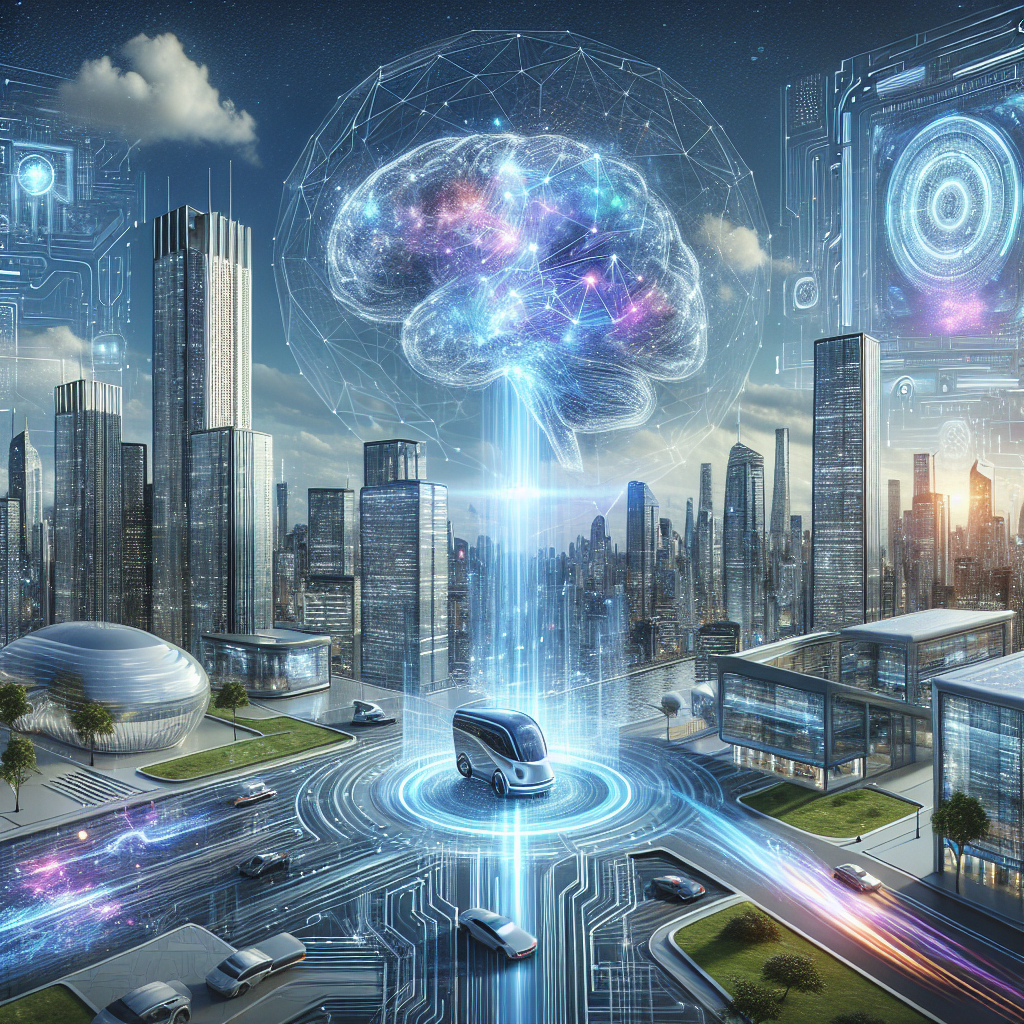Artificial Intelligence (AI) and Machine Learning are two of the most transformative technologies of our time, shaping the future of technology in profound ways. From self-driving cars to personalized recommendations on streaming platforms, AI and Machine Learning are revolutionizing industries and changing the way we live and work.
AI is the science of creating intelligent machines that can perform tasks that typically require human intelligence. Machine Learning is a subset of AI that focuses on developing algorithms that allow machines to learn from data and improve their performance over time. Together, AI and Machine Learning are driving innovation and creating new opportunities across a wide range of industries.
One of the key benefits of AI and Machine Learning is their ability to automate tasks that were previously manual and time-consuming. For example, in the healthcare industry, AI-powered systems can analyze medical images and diagnose diseases faster and more accurately than human doctors. In the financial sector, Machine Learning algorithms can detect fraudulent transactions and prevent cyberattacks in real-time.
AI and Machine Learning are also improving the customer experience in various industries. Retailers are using AI to personalize product recommendations and improve customer service through chatbots. Streaming platforms like Netflix and Spotify are leveraging Machine Learning algorithms to suggest content based on users’ preferences and viewing habits.
In the transportation sector, AI is powering self-driving cars and optimizing traffic flow to reduce congestion and improve safety. The agriculture industry is using AI to monitor crop health and predict yields, helping farmers make better decisions and increase productivity. In manufacturing, AI-powered robots are streamlining production processes and reducing costs.
The impact of AI and Machine Learning is not limited to specific industries – these technologies are reshaping the global economy and creating new opportunities for businesses and individuals. According to a report by PwC, AI could contribute up to $15.7 trillion to the global economy by 2030, making it one of the most significant drivers of economic growth in the coming decades.
Despite the numerous benefits of AI and Machine Learning, there are also concerns about the ethical implications of these technologies. Issues such as data privacy, algorithmic bias, and job displacement have raised questions about the responsible use of AI and Machine Learning. It is essential for companies and policymakers to address these concerns and develop regulations that ensure the ethical and transparent deployment of AI technologies.
In conclusion, AI and Machine Learning are shaping the future of technology in profound ways, revolutionizing industries, and creating new opportunities for innovation and growth. As these technologies continue to evolve, it is crucial for businesses, governments, and individuals to adapt and embrace the transformative power of AI and Machine Learning.
FAQs:
Q: What is the difference between AI and Machine Learning?
A: AI is the science of creating intelligent machines that can perform tasks requiring human intelligence, while Machine Learning is a subset of AI that focuses on developing algorithms that allow machines to learn from data and improve their performance over time.
Q: How are AI and Machine Learning used in different industries?
A: AI and Machine Learning are used in various industries, including healthcare, finance, retail, transportation, agriculture, and manufacturing, to automate tasks, improve customer experiences, and drive innovation.
Q: What are some of the ethical concerns surrounding AI and Machine Learning?
A: Ethical concerns surrounding AI and Machine Learning include issues such as data privacy, algorithmic bias, and job displacement. It is essential for companies and policymakers to address these concerns and ensure the responsible use of these technologies.
Q: How can businesses benefit from AI and Machine Learning?
A: Businesses can benefit from AI and Machine Learning by automating tasks, improving customer experiences, and driving innovation. These technologies can help companies increase productivity, reduce costs, and stay competitive in a rapidly evolving market.
Q: What is the economic impact of AI and Machine Learning?
A: According to a report by PwC, AI could contribute up to $15.7 trillion to the global economy by 2030, making it one of the most significant drivers of economic growth in the coming decades.

